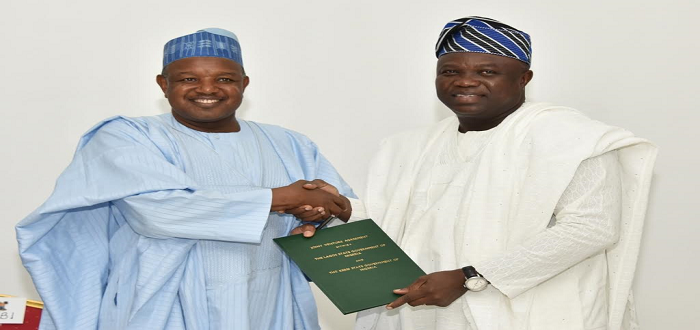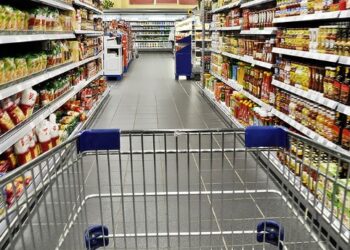Food security and self-sufficiency requires immediate attention at policy and strategic levels to sustain the country.
Lagos State Governor, Mr. Akinwunmi Ambode this week, made this statement at the signing of a Memorandum of Understanding between Lagos and Kebbi States to establish a commodity value chain that will boost food processing, production, and distribution.
Ambode revealed that Lagos State is currently consuming 6,000 herds of cattle daily which may increase to 8,000 in the next 5 years.
It is his believe that the partnership between Lagos and Kebbi States would bring an end to the importation of rice into Nigeria.
Lagos state is the largest consumer of food commodities in Nigeria by virtue of our state population.”
“We have the market, with the required purchasing power also. Lagos state has an estimated consumption of over 798,000 metric tonnes of milled rice per year which is equivalent to 15.96 million of 50kg bags, with a value of N135 billion per annum.”
The Lagos State Chief Executive said the state is currently consuming 6,000 herds of cattle daily which may increase to 8,000 in the next five years.
Ambode said the partnership between the two states would bring an end to the importation of rice into the country.
“This is the first time in the history of Nigeria that two states are collaborating to develop their agricultural potentials,” he said.
“We have the economic prowess to produce rice locally. The reality is for all of us to embrace the consumption of local foodstuff and commodities.”
The partnership is aimed at bringing about national food sufficiency and food security, as well as create employment for both states and the country.
“Lagos state is one of the largest producers of poultry and thus has a large demand for maize for livestock feed production.”
“The state also houses most of the industrial users of wheat and sorghum; mostly flour mills, bakeries, breweries, and food manufacturers.
“Kebbi state, on the other hand, is blessed with a vast arable land characterised by very large flood plains, lowland swamps and gentle slopes. In the 2014/2015 wet season, over 600,000 hectares of land was deployed for rice cultivation in the three senatorial areas of the state.”
“The people of Kebbi are traditionally rice farmers with average land holding of about 10 hectares. Presently, Kebbi has over 50,000 metric tonnes of paddy in store produced from the last two planting seasons,” said Mr. Ambode.
“With these considerations mind, Lagos state and Kebbi state have decided to collaborate and exploit our areas of comparative advantage to create value for both states.
“This alliance will ensure food security, job creation, increase in farmers’ income and the overall improvement in the living conditions of the residents of both states through wealth creation and poverty reduction.”
“We have already designated the 100 hectare land at Imota as the Agric Park in the state. Other locations in and outside the state will be vigorously activated to fulfil our mission in record time.
Here’s what the Governor of Kebbi State, Abubakar Bagudu said in response:
“What we are doing is that we are pioneering a collaboration that will bring other states on board later and we believe that our potentials is enormous and we must have pacesetters to start that process of joint collaboration for our collective good.”

















